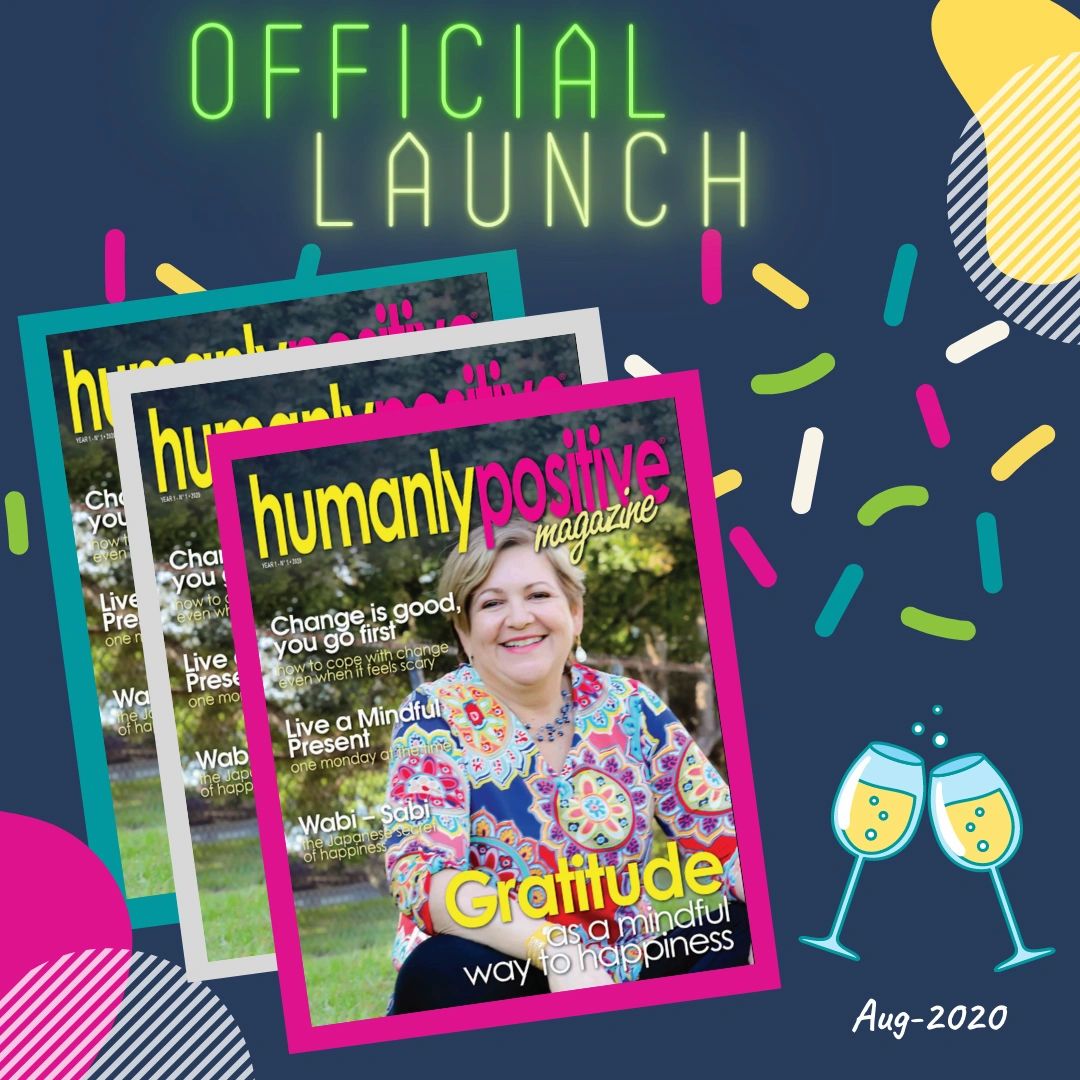This broadened awareness we experience when we feel good can be explained in the broaden-and-build theory of positive emotions developed by Dr. Barbara Fredrickson. This theory suggests that when we experience positive emotions such as joy, love, gratitude, serenity, or amusement, we broaden our perspectives and over the long term we are capable of building skills and resources to help us cope with life challenges and become more resilient, guiding us towards more satisfied lives and greater well-being. And I’m telling you this because gratitude is one of the most powerful positive emotions that exist, and the easiest to self-generate, which prepares the fertile soil for other positive emotions to emerge and bloom. Gratitude is also a character strength that connects you to the larger concept of the world and even spirituality. Gratitude has been associated with many benefits, including happiness, physical and mental health, stronger relationships, and less depression, and it opens the door for us to experience other strengths, such as kindness, curiosity, humility, and forgiveness that are so needed in this complicated world.
I came to learn this around eight years ago when experiencing a demanding management role under a lot of stress, sometimes self-inflicted, and drastic corporate changes. I found positive psychology looking for ways to manage stress better and enjoying life more. I thought to myself, everything we do doesn’t have to be about working like crazy, running back home to cook, rushing over dinner to go back to sleep and repeat all over the following day, without mentioning the many errands, and the ups and downs of life. There has to be something more! I needed answers, but didn’t have the time to stop and think. Until the day I decided to look at successful people, so I heard a lot about mental toughness, abundant mindset, strengths, optimism, purpose, and resiliency—and all of this and more I could find in the field of positive psychology. I was able to learn so much and improve my life to a point that I experienced a whole transformation. I realized that by taking care of myself, I was actually taking care of everyone else that interacted with me. I became a new person, with a new perspective, and felt so good and fulfilled that I needed to find a way to share it with the world.
From all the interventions I was able to practice, I have chosen gratitude because I think it is the foundational emotion that facilitates experiencing all the other elevated emotions, becoming a filter through which we experience life and create our reality. I think gratitude is the most powerful and easiest for anybody to access at any given moment. Preparation is not necessary; you can start any time. Think about it: Gratitude allows us to enjoy the wonderful things in life, inside us and around us. Life, for example, is the greatest gift of all. We have been blessed with life, with the opportunity to experience this amazing world we call Planet Earth. When we are grateful, our attention shifts to all that is positive in our lives, and our energy follows, which means you will engage in activities that feel good. Gratitude makes us more mindful, increasing our attention to the positive.
The Greater Good Science Center (University of California Berkeley) offers plenty of information on the benefits of a gratitude practice. The good news is that gratitude is not only an emotion but also an attitude that can be learned and developed. When you feel and express gratitude effortlessly, you are opening your heart to invite many other positive states and experiences into your life. Dr. Joe Dispenza, who educates people all over the world on how to rewire their brains to create an ideal reality, states in his book Breaking the Habit of Being Yourself, “When you are in a state of gratitude, you transmit a signal into the field that an event has already occurred. Gratitude is more than an intellectual thought process.” Meaning that when we make gratitude, and other elevated emotions, our habit, we are actually fueling our creations; we are acting as if our ideal reality has already happened.
Tal Ben-Shahar says, “When you appreciate the good, the good appreciates.” This is based on the fact, he adds, that “when you think of all you can be grateful for, when you take stock, you feel better. When you feel better, you become more open to—and are more likely to notice and pursue—positive experiences. You then have more to be grateful for, which in turn improves the quality of your life, and so on. You can begin this positive spiral of happiness at any moment by choosing to reflect on the things for which you are grateful.” His book Choose the Life You Want was an eye-opener for me, as it gives over 100 examples on how we can reframe any situation into a more positive perspective, activating in us a mindful way to happiness.
Gratitude has many benefits, and some of the most important are:
- Increases the feeling of well-being both in those who feel it and in those who receive it
- Facilitates the enjoyment of the present moment, since we are more aware of the positives
- Improves our sense of self-worth, because when you see life full of good things, you open yourself to receive more
- Reinforces self-esteem of the receiver and inspires them to continue being generous or kind to others
- Improves social relations by recognizing the other and their positive impact in our life
- Helps reduce stress, depression, and anxiety, which positively impacts our health
- Creates better moods and more overall life satisfaction
- Starts a virtuous cycle in your mind that influences how you think and see the world
- Increases our awareness of the extraordinary in the ordinary.
Are you ready to foster gratitude in your life?
For a gratitude practice to be effective, the person first needs to have the awareness of what to be grateful for and why, to understand it in order to value and appreciate it. This awareness then facilitates the feelings of gratitude, joy, contentment, interest, and so on, and the ability to experience a full spectrum of positive emotions—which not only feels good in our bodies, as our brains release chemicals for well-being, but also widens our perspectives to identify even more things to be grateful for and become more resilient in the process.
Because of this, I decided two years ago to embark on a project to design a gratitude practice in the form of colorful cards, providing 52 reasons to be grateful with short mindfulness reflections, encouraging people to write their own reflections in a matching journal. This deck of cards will take you on a journey of self-awareness and will facilitate the rediscovery of YOU, and the world that hosts you, while evoking feelings of gratitude, appreciation, and admiration. This will expand your horizons and your wellness, making you tune your focus so you can experience even more amazing things. I invite you to experience My Gift of Gratitude to support you on this journey.

- Engage in experiential consumption: Spending money on experiences rather than things encourages the experience of gratitude.
- Write a gratitude letter to a special person in your life and read it out loud to that person or send it.
- Journal about “the best” in your life—the best people, the best things, the best moments, the best activities, the best food.
- Use a gratitude app, for example Gratefulness.me, where you get reminders to add daily notes, including pictures.
- Start a Gratitude Challenge, encouraging your family to use a board or a jar and get together at the end to read the notes to each other.
- Celebrate! When success comes to you or a loved one, really take the time to celebrate it with a grateful heart.



